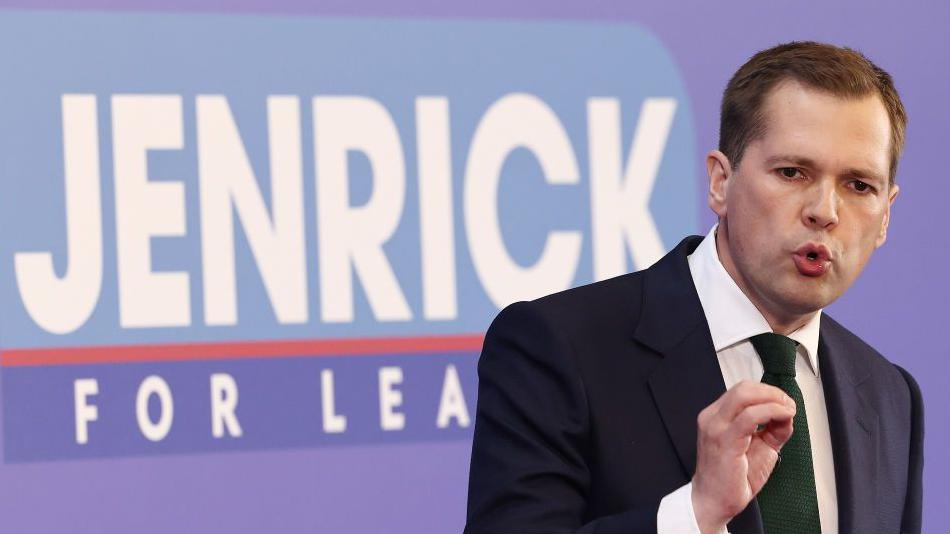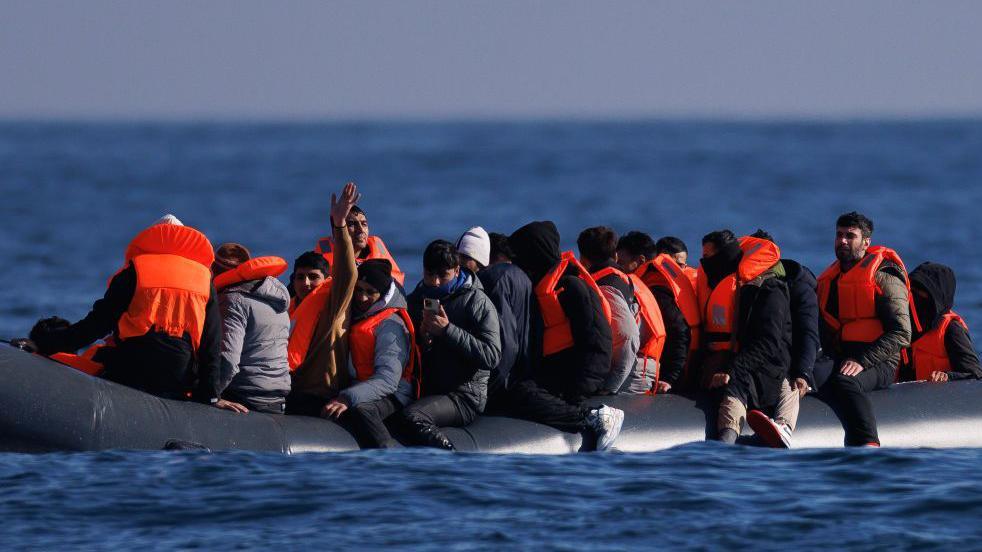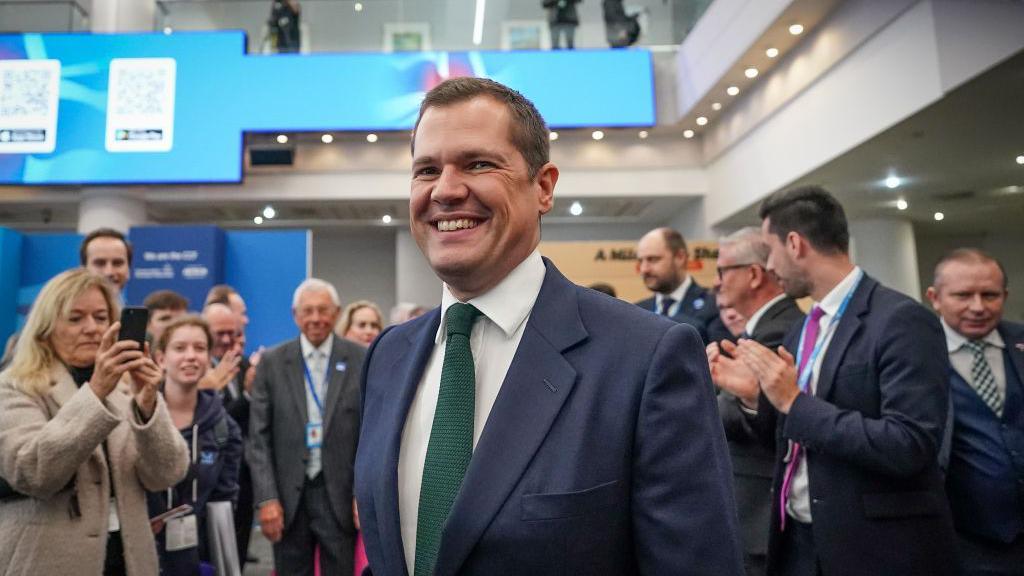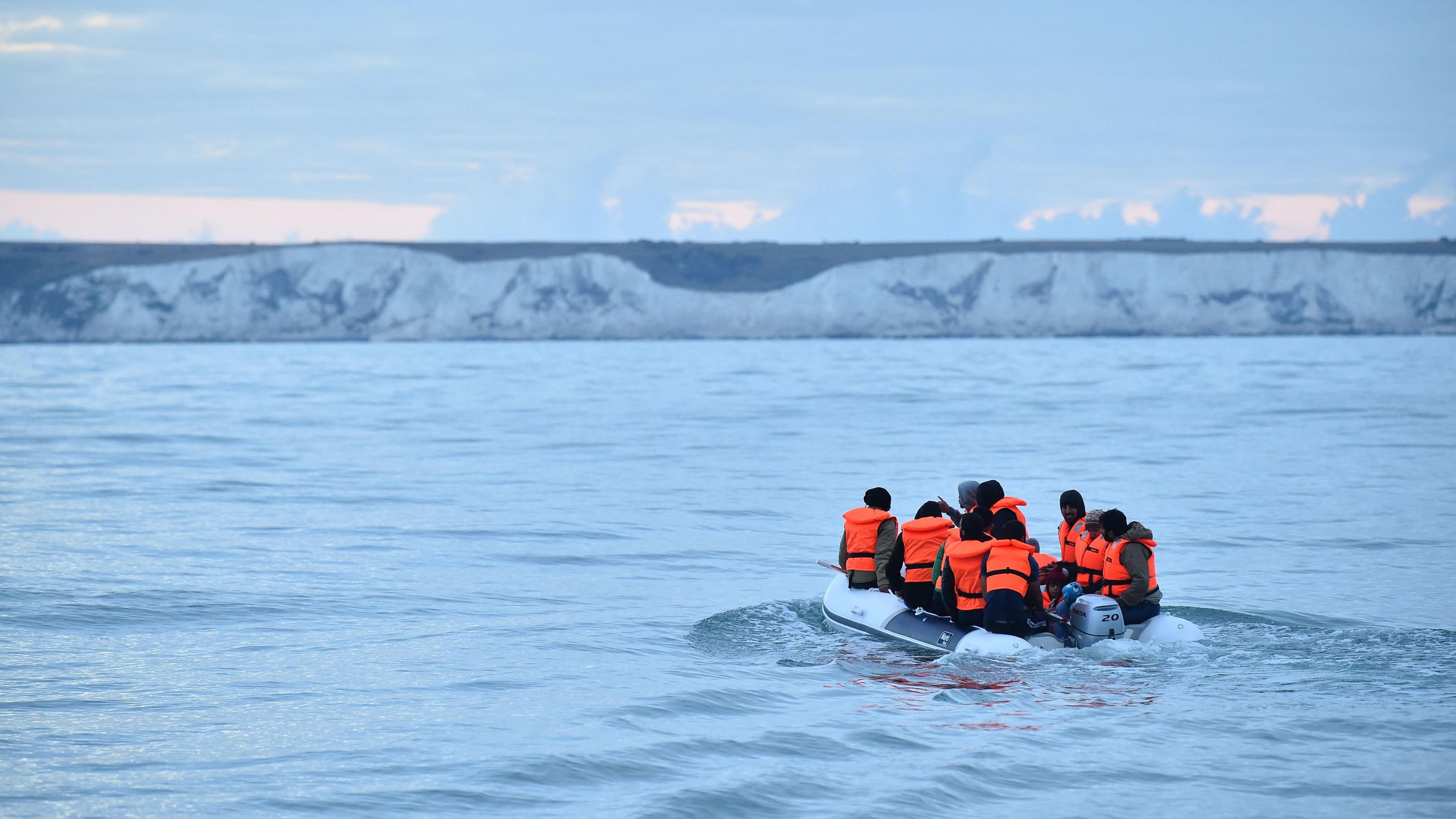'I would end small boat crossings in weeks' - Jenrick

The Conservative leadership candidate said he would stop the crossings in weeks if he was prime minister
- Published
Conservative leadership candidate Robert Jenrick has claimed that if he was prime minister he would be able to end small boat crossings “in weeks".
Speaking ahead of Saturday’s result, which will see either Jenrick or Kemi Badenoch replace Rishi Sunak as leader of the Conservative Party, the MP for Newark told BBC Radio Kent he had resigned from government "because I didn’t want to be another minister who made promises about stopping the boats that I couldn’t keep".
So far in 2024, 561 small boats are known to have made the journey across the Channel carrying at least 29,867 migrants.
The Home Office said it would "stop at nothing" to dismantle people-smuggling gangs and bring them to justice.

Small boat crossing numbers have already surpassed last year's total
When questioned about how quickly he could stop the boats, Jenrick said: “If my approach from earlier this year was put into place I am confident we could stop the boats in weeks, and stop harm to people in Dover for example.”
Jenrick said while he was immigration minister he spoke to people in Dover who wanted more done to tackle small boat crossings, adding: “These people were terrified and that’s why we need to leave the European Court of Human Rights (ECHR) and replace it with a British Bill of Rights.
“We can’t have sites like Manston overflowing, we can’t have children’s services in the county struggling to help British children because of unaccompanied asylum seeker children arriving, and I want us to sort this now," he said.
When asked how he would stop the boats, Jenrick said: “Anyone who arrived here would be deported either to their home country or a safe third country like Rwanda immediately.”
The Rwanda scheme, which originated under the Conservatives, aimed to deter small boats crossings in the Channel by sending some people who arrived in the UK illegally to the east African country.
However, the plan was stalled by legal challenges and no migrants were sent there before the general election. The scheme was then scrapped by the Labour government.
'Investigate, arrest, and prosecute'
However the former Conservative MP and Attorney General, Dominic Grieve told the BBC: "Only 41% of persons failing to get asylum status after coming to the UK have been removed since 2010.
"In the case of the vast majority this has nothing to do with the ECHR but with the inability to get their likely country of origin to take them. Claiming that leaving the ECHR will solve this is false."
A Home Office spokesperson said: "We all want to end dangerous small boat crossings, which threaten lives and undermine our border security.
“The people-smuggling gangs do not care if the vulnerable people they exploit live or die, as long as they pay. We will stop at nothing to dismantle their business models and bring them to justice.”
The spokesperson added that "our new Border Security Command will strengthen our global partnerships and enhance our efforts to investigate, arrest, and prosecute" the gangs.
Kemi Badenoch was approached by the BBC for an interview.
Follow BBC Kent on Facebook, external, on X, external, and on Instagram, external. Send your story ideas to southeasttoday@bbc.co.uk, external or WhatsApp us on 08081 002250.
Related stories
- Published17 October 2024

- Published26 October 2024
